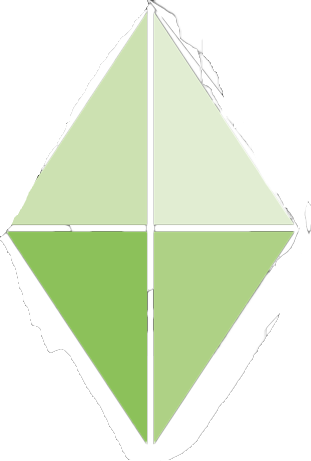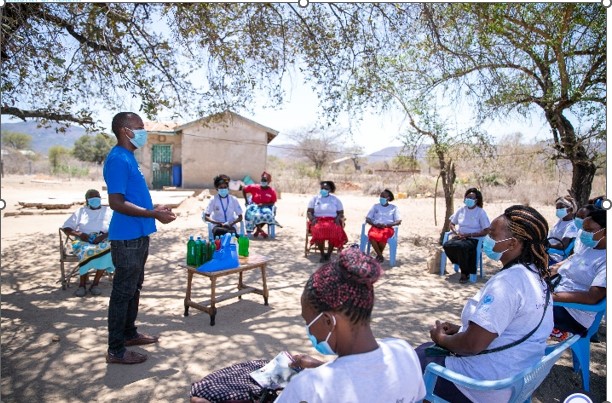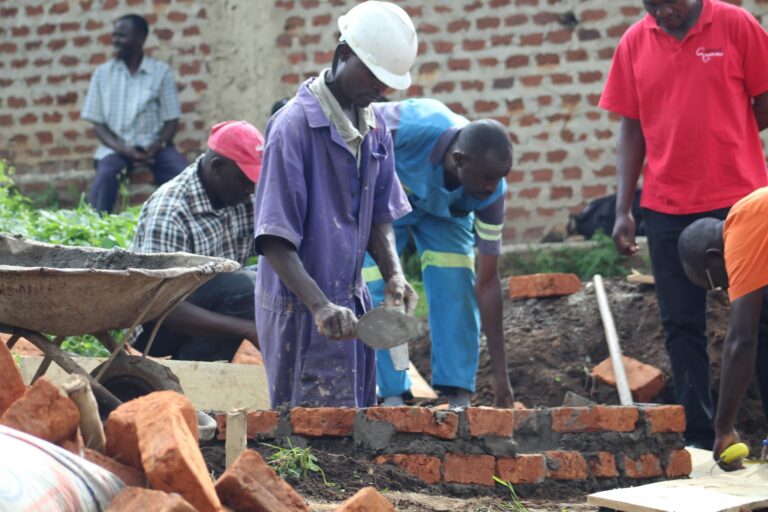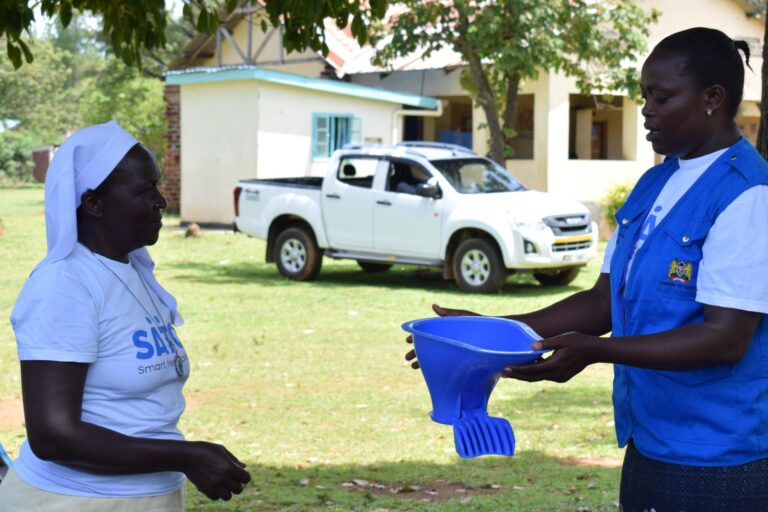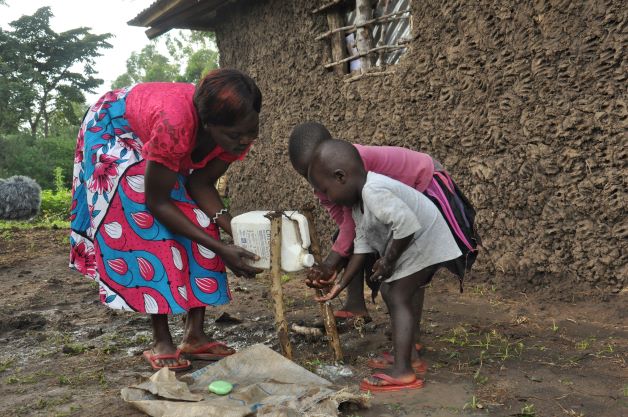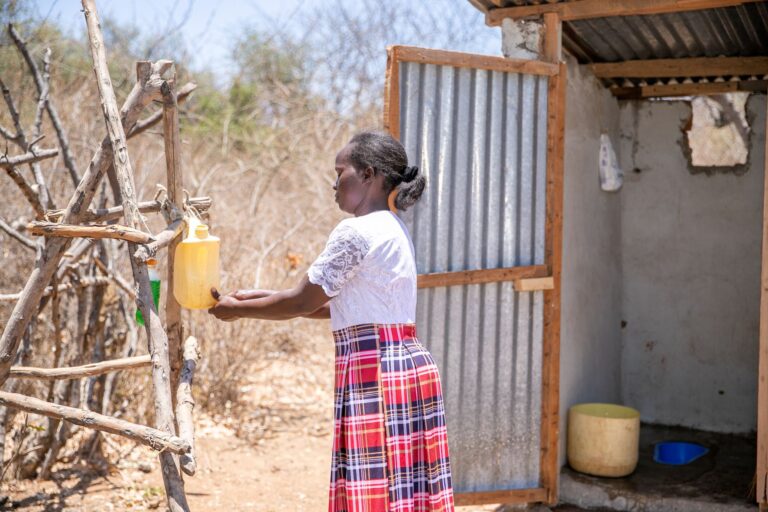Community Health Volunteers Champion the Uptake of Improved Sanitation Facilities
Sanitation marketing is an approach used to improve sanitation through informal sector providers by building sustainable markets for sanitation goods and services.
Through the Market Based Sanitation (MBS) project, Community Health Volunteer in groups called Community Units (CUs) are trained on business skills particularly focusing on sanitation business ownership. The trainees are taken through financial management, entrepreneur skills, marketing plan, business plan and legal requirements to own a business.
About Finish Ink Kenya and Market Based Sanitation Programme.
FINISH INK through UNICEF has been implementing market-based sanitation (MBS) in 3 Kenyan Counties these being Kitui, Migori and Siaya. The aim of the project is to improve basic sanitation for Universal health Coverage. By increasing access to basic and improved sanitation services through engagement with the private sector and development of innovative financing mechanisms for vulnerable households and entrepreneurs. FINISH delivers on this by ensuring that: people are aware of the need for a safe and durable toilet, people want to invest in one, local people (artisans) can build and manage safely, and that the toilets are affordable. This is achieved through a public private partnerships engagement where the Government, communities, private sector, and financial institutions work together towards the development of local sanitation markets for the poor and inclusive scale of these markets.
About the Intervention
Objective
To capacity build and empower Community Health Volunteers (CHVs) on demand / supply creation in sanitation business. This will not only improve the sanitation status of communities but also equip the Cus with sustainable businesses, improving their livelihoods in the long run
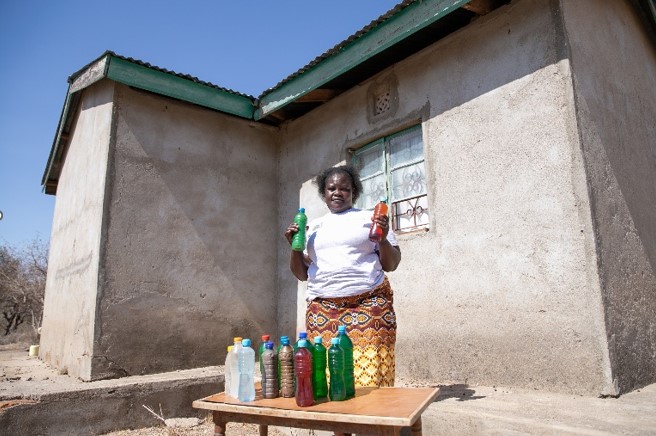
Case of Musokini Cu
The community unit is made up of 22 women CHVs and has been in existence since 2016. They are located in Kitui East Sub-County where MBS project is currently being implemented. FINISH INK sensitized the group on the sanitation products (SATO, VIP, VDIP toilets) available for the community to up take. These sanitation products are ideas to be sold to the community in order for them to improve their sanitation from BORA CHOO to CHOO BORA.
The group undergoes a sanitation marketing training and are given a seed capital of SATO products (pan, stool, flex) in order to kick start their sanitation business. The group is then tasked to come up with another sanitation business to pursue for sustainability.
One of the group members was chosen to attend a two day business training in order to gain business skills and cascade it to the group. The training entails financial management, entrepreneur skills, marketing plan, business plan and legal requirements to own a business. After attending the training, Dorcas went back to the group and passed on the knowledge. Out of this new knowledge attained, the group decided to start a detergent business in order to complement the SATO selling.
“We decided to do soap making because we figured out that people will need to clean their improved latrines.” Dorcas said.
Aside from soap, the group makes bleach, toilet cleaners, anti-septic and hair cleaning shampoo.The group used the income from selling SATO products to kick start their detergents business. They not only sell to households but also schools and churches. They find ways of marketing their products such as door to door visits and market days.
From this, the women’s standard of living has been improved. They can now educate their children, buy essential household goods, take care of their family and save as a group for bigger projects.As a group, they are not only proud of the financial empowerment but love the fact that the sanitation status of the community is being improved.
We decided to do soap making because we figured out that people will need to clean their improved latrines
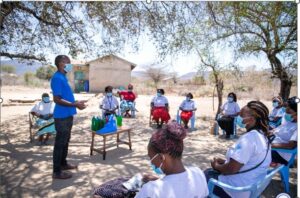
Sustainability
With the detergent selling business to complement improved latrine marketing, the group will have a sustainable income generating business.
The profit from the business is saved, and some is ploughed back in the business.
The group hopes to brand their products soon and kick off production in large scale so as to increase their customer reach.
The group will receive training from FINISH INK about a transactional ledger application that can be downloaded on a smart phone (DataGhala) where they can easily save, track their expenditure and in the long run get loans from specific banks to boost their business.
Challenges
Despite the achievements, some challenges have been experienced. The prices of SATO products increased making it hard for the customers to prioritize it to other competing needs. The cost of transporting the material used to make detergent and shampoo is expensive. In addition, some customers end up making partial payments for the sanitation products making it bad for business.
